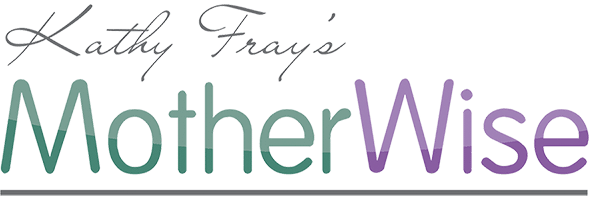How ya feelin’ on the inside, honey? If you’ve read much of my manuscripts, you’ll know I preach about making yourself a priority, but just in case you’ve forgotten — in the devoted busyness and self-sacrificing dedication of it all, and you’re feeling somewhat harassed, jaded, irked, knackered or weary — good help can be just a health shop away.
The brain is the most complicated and mysterious organ in our body, performing an intricately complicated balancing act of immeasurable activities — most hidden from us. Medical science is still researching the roles of hormonal therapies and natural complementary therapies for treating neurological disorders such as postnatal depression disorders. So, for the meantime perhaps the best advice will be to seek professional help and listen to your intuition in your personal search for your own individual solutions.
The most inexpensive remedy (but sometimes the most difficult to obtain) is genuine non-judgemental encouragement and support from your partner, family and friends. Try, if you can, to seek out people who will be accepting, loving and encouraging, people who will listen to you and give practical help.

Following is a list of body-mind boosters you could consider to get you started on the road to uplifting your spirits.
Gotu kola (Indian pennywort)
Gotu kola is one of Indian (Ayurvedic) medicine’s primary rejuvenative herbs (nicknamed ‘food for the brain’); and in China it was recorded 2000 years ago as a herbal medicine. In India, gotu kola can be called Brahmi because it brings knowledge of Brahman (highest reality).
Besides improving brain function (such as memory), gotu kola also has positive effects to aid the circulatory system, improving blood flow and strengthening arteries, veins and capillaries (described traditionally as a blood purifier). In addition, it improves digestion disorders, strengthens the immune system and fortifies the nervous system. Gotu kola is also renowned for its superb skin-healing qualities.
False unicorn root
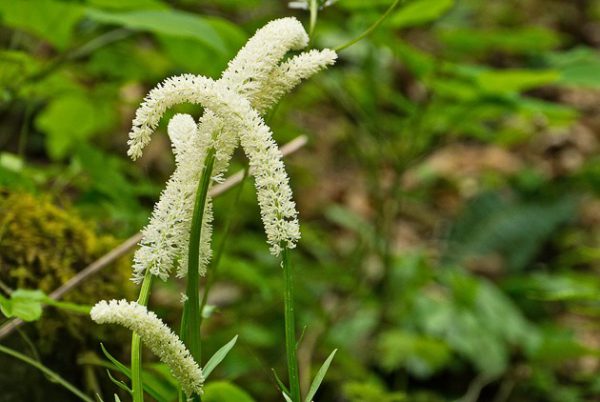
False unicorn root was traditionally a miscarriage preventative and morning-sickness nausea remedy with Native American women. Over time, countless women have used false unicorn root as a powerful uterine and ovarian tonic for disorders of the female reproductive system, assisting to normalise organ function. It can also help with menstrual and uterine problems such as afterbirth contractions, menstrual cramping, heavy bleeding at menopause, and has a reputation of increasing women’s fertility.
Chaste tree berries (Vitex agnus-castus)
This is a very old Mediterranean medicinal shrub often featured in Greek mythology and even mentioned by Hippocrates. It is traditionally used to treat menstrual-cycle complaints (particularly PMS), female hormonal imbalances, and as a post-pregnancy support.
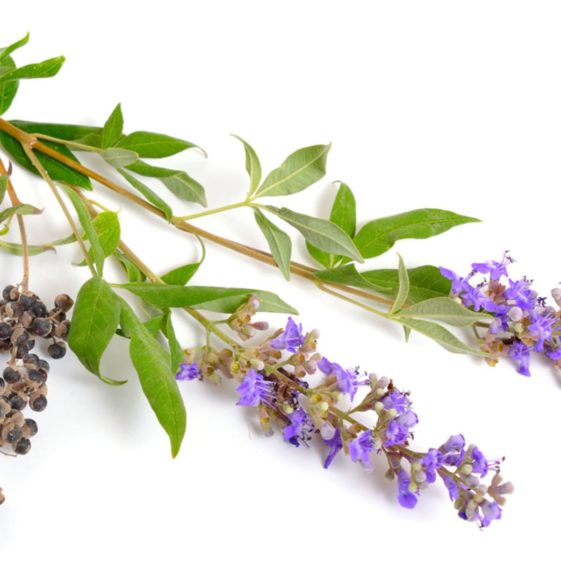
At the base of the brain is the hypothalamus, and hanging by a ‘stalk’ below it is the grape-sized master gland, the pituitary. The hypothalamus triggers the pituitary to release the ovaries-stimulating hormones known as FSH (follicle stimulating hormone) and LH (luteinising hormone), which in turn stimulate the production of oestrogens and progesterone. It is this relationship, the pituitary–hypothalamic axis, which it is believed Vitexagnus-castus positively affects, by decreasing FSH (lowering oestrogens) and increasing LH (increasing progesterone); thus improving and normalising the oestrogen–progesterone ratio.
Also known as monk’s pepper, Vitex agnus-castus does not provide rapid results; it is best used long-term because its benefits develop slowly.
Shatavari (Asparagus racemosus)
This Indian herb (in Sanskrit named ‘Shatamuli’) is the most important tonic in Ayurvedic medicine for treating female reproductive-system health disorders. This Hindi word translates to ‘she who possesses a hundred husbands’, which is referring to its rejuvenating effects upon the reproductive organs.
Shatavari is used traditionally to improve the quantity and quality of breastmilk, to enhance feelings of love, for sexual debility, increased fertility, healing inflamed tissue, and to improve the body’s own healing power. This is a soothing and calming tonic.
Counselling, psychotherapy and hypnotherapy
Welcome to the world of psycho-social management. Such ‘interventions’ include talk therapies such as counselling and psychodynamic psycho- therapy. These consistently prove to be of great assistance to maternal mental-health problems. Having a few sessions of supportive listening absent of opinions and advice, and providing an opportunity for the mother to tell her birth story and discuss her anxious concerns, can reduce depression very effectively. Counselling that includes practical advice regarding the lack of support for the mother, and counselling that deals with her feelings of being unable to cope and her general lack of pleasurable experiences, have both been proven to be of great benefit.

Cognitive behavioural therapy with its problem-solving approach, even over the telephone, can be just as effective as some antidepressants.
Interpersonal therapy, which focuses on the mother’s present and past relationships, and how they relate to her current depression, can also significantly relieve depressive symptoms.
Hypnotherapy works with the subconscious, helping to retrain or reprogramme the unconscious mind to break the internal cycle of depressed feelings. It teaches you how to put the past, present and future into perspective — so you can move forward confidently into the life you want to feel.
St John’s wort (Hypericum perforatum)
So named because it annually blooms in Europe by the feast day of Saint John the Baptist, St John’s wort has been known as a medicinal herb for centuries. It has a long, magical and fabled history. For example, around the summer solstice early Christians would soak the plant’s flowers in olive oil that would turn blood red (due to the hypericum) to symbolise the blood of martyred John the Baptist, then it would be cast onto bonfires or used to bless crops and to ward off evil spirits.
Also known as the devil’s scourge, St John’s wort has been used, predominantly by ‘wise women’ and midwives for many hundreds of years, to ‘chase away the devil of psychotic madness’ and other illnesses of the imagination and understanding, such as melancholia and anxiety. Even soldiers in the Crusades would drink it with wine to steady their nerves.
This mood-enhancing antidepressant supplement increases the availability of serotonin in the neuron synapses (brain nerve-cell junctions), norepinephrine (which improves alertness and increases energy), and dopamine (which increases the feeling of wellbeing).
Many believe St John’s wort is a legitimate alternative to pharmaceutical antidepressants. In some western countries it is more popularly prescribed than the drugs Zoloft and Prozac. It is also very popular for treating insomnia, mood swings, fatigue, PMS and menopause. As with pharmaceutical antidepressants, the effects of St John’s wort take six weeks to become fully apparent.
Like all alternative or natural remedies, the effectiveness of St John’s wort and its potential interactions with other medications (such as the contraceptive pill) mean that modern pharmaceutical corporations always advise caution with herbal medicine (with a trait of professional jealousy).
Ginkgo biloba
Traced back two million years (even before the Ice Age), Ginkgo biloba is thought to be the oldest species of tree — one tree can live a thousand years. Today there is a refined mood enhancement supplement that contains GBE (Ginkgo biloba extract) and this is a very effective treatment for depression.
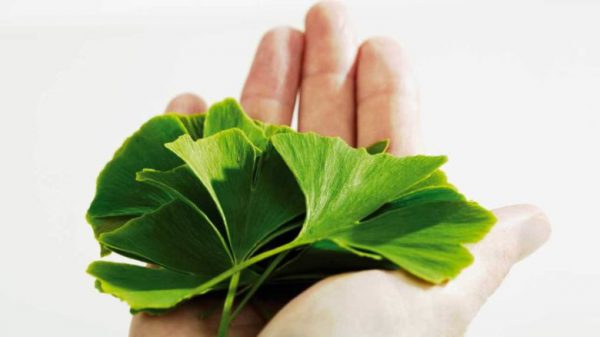
This natural antidepressant stabilises cell membranes, inhibiting lipid breakdown and aiding cell use of oxygen and glucose. It is a mental and vascular stimulant, which normalises blood circulation (especially in the brain’s hippocampus and striatum), and so protects the brain, liver, eyes and blood vessels.
GBE is used medicinally for a wealth of mental-function problems, including depression (increases neurotransmitter production), mental concentration (gives a clearer mind), and Alzheimer’s. It also helps to reverse mental deterioration (such as from strokes). It is often prescribed by doctors in some western countries, and has almost immediate effects.
Siberian ginseng (Eleutherococcus senticosus)
Although Siberian ginseng is not a ‘true’ panax ginseng, it is a distant relative and shares similar uses. Being a mood enhancement supplement, Siberian ginseng gives marvellous protection against stress.
This natural antidepressant can help to combat depression, insomnia, moodiness, fatigue, poor memory, lack of focus, mental tension, is an immune system booster, improves the balance of the brain’s important neuro-transmitters, and increases physical performance and endurance.
Essential amino acids
Your liver manufacturers about 80 per cent of the amino acids your body needs — the other 20 per cent can only be supplied by diet, and are therefore called ‘essential amino acids’. Amino acids are the building blocks of protein chains, and having low levels of certain amino acids can depress a person’s moods. For example, low tyrosine or phenylalanine can create abnormal levels of mood-regulating chemicals in the brain such as dopamine. Low levels of SAM-e (S-adenosyl methionine) can imbalance catecholamines, which can depress the mood. Depleted levels of 5-HTP (5-Hydroxytryptophan) affects production levels of the powerful neuro-transmitter serotonin, which affects mood, such as satisfaction and wellbeing. This causes depressed moods including anxiety, insomnia, reduced appetite and lowered libido.
Taking an essential amino acid supplement can be positively mood- enhancing, and it is advantageous if it is combined with vitamin C (ascorbic acid) and vitamin B6.
5-HTP (5-Hydroxytryptophan)
In medicine a ‘precursor’ is the substance from which another, more biologically active substance is formed. L-tryptophan is the essential amino acid that the body converts into 5-HTP, and 5-HTP is the precursor (intermediate metabolite) of serotonin and the brain’s pineal gland melatonin. Serotonin is the main brain neuro-transmitter that controls both mood regulation (combating anxiety and depression) and impulse control (combating aggression and controlling sleep).
Taking 5-HTP supplements can work very well as an antidepressant to combat mild-to-moderate depression by increasing the production of serotonin. 5-HTP has also been shown to increase the activity of brain dopamine and adrenal noradrenaline, which help regulate alertness and mood. This results in 5-HTP relieving depression, improving mood, treating anxiety, enhancing sleep quality, improving cognitive abilities, and suppressing the carbohydrate (sugar/starch) cravings typical with depression. Some are heralding 5-HTP as Prozac’s ‘true alternative’. (5-HTP supplements are derived from seeds of the West African medicinal plant Griffonia simplicifolia.)
Note-1:If one bottle of 5-HTP capsules is considerably cheaper than another, it most likely is simply a lower dose, so read the packaging. And do NOT combine 5-HTP with pharmaceutical antidepressants.
Note-2: 5-HTP seems to enhance the positive benefits of sleep, so personally I have found when I am sleep-deprived (eg after attending an overnight birth) then taking 5-HTP nocturnally before my next sleep, greatly assists not still feeling ‘jet-lagged’ the next morning.
Pharmaceutical antidepressant medications
Gone are the days of routinely treating depression with the addictive benzodiazepine-based medications such as Valium. Medical science understands so much more now about the human brain’s chemical complexities. Yet the more scientists learn about how the brain functions, the more science realises it doesn’t yet understand. However, there is a whole new generation of pharmaceutical antidepressant medications. Three points to note:
Antidepressants generally take six weeks to work fully.
A side effect of antidepressants can be a reduced libido, simply because of an improved level of contentment!
If your doctor recommends weaning your baby from breastfeeding during a medicalised recovery from depression, then do seek a second opinion. For many mums with depression, breastfeeding her precious baby may be the only high points of her day, and discontinuing can add to her sense of failure. Plus, it ispossible to obtain medications that allow breastfeeding to continue safely — especially compared to formula- feeding or the effect of a mother suffering from untreated depression.
SSRIs (selective serotonin re-uptake inhibitors) such as Aropax, Cipramal and Prozac block the reabsorption of the neuro-transmitter serotonin by the neuron synapses, thus increasing the availability of serotonin inside the brain, and prolonging its action on the brain. SSRIs have not been proven as harmful during breastfeeding, however Aropax or its generic copies are widely accepted as the best choice for lactating mothers.
Note:It is normal to continue to take pharmacological anti- depressants for about six months after recovery, then gradually reduce the dose. (Never stop those drugs cold turkey!)
Korean or Chinese ginseng (Panax ginseng)
Derived from the Greek words ‘Akos’ (cure) and ‘Pan’ (all), Panax ginseng comes close to being the perfect herbal cure-all. It helps to restore the physiological balance of the body’s mental and physical capacities — aiding the body to heal itself.
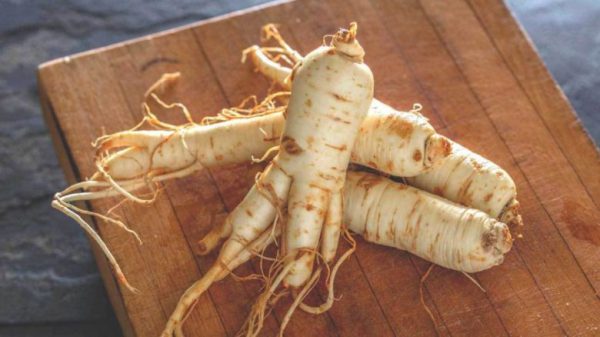
An Asian herb, exalted in mythology, it has been used as a medicine for thousands of years. Its influence is gentle, slow, cumulative and broad.
Panax ginseng is commonly used to boost energy (treat weakness, exhaustion and fatigue); to sharpen the mind (treat loss of concentration); to reduce stress; to boost the immune system (enhance immune responses); to modulate blood pressure; to regulate blood-sugar levels (e.g. diabetes); to strengthen the cardiovascular system (circulation); to raise athletic stamina (including sexually); as an anti-inflammatory; as an antioxidant; and as a supplemental cancer therapy. Even the conservative WHO formally recognises its unique qualities.
The constituents of Panax ginseng are remarkably complex and still an unsolved mystery to modern science. (Natural white ginseng is steam- processed to produce the higher-potency red ginseng.)
Evening primrose oil
Evening primrose oil gets its name from night-blooming wildflowers, and it is a remarkably concentrated source of the EFA (essential fatty acid) omega 6, called GLA (gamma-linolenic acid). This gives evening primrose oil wonderful healing qualities; it assists the body’s hormone production of prostaglandins, and is a natural anti-inflammatory.
Evening primrose oil is particularly helpful to relieve the discomforts of PMS, breast tenderness, menstruation, menstrual cramps, endometriosis- related inflammation, fibrocystic breasts, irritable bowels, carbohydrate cravings, mood swings, anxiety, irritability, headaches and water retention.
It is recommended to take evening primrose oil — say 500 mg twice daily — with or after food, with a multi-mineral-vitamin supplement that includes zinc, vitamin C, magnesium, vitamin E and complex vitamin B. After several months you may also see improvements in your nails, hair and skin.
Flaxseed oil (linseed oil)
Flaxseed oil is rich in EFAs (essential fatty acids) such as omega 3 and omega 6, and is renowned for its benefits to the reproductive, central nervous, immune and circulatory systems — ultimately lowering cholesterol and high blood pressure, and reducing the potential risk of heart disease. It is also good for fatigue and depression.
Flaxseed oil also appears to combat bacteria, funguses and viruses (such as cold sores and shingles). The lignins (a complex plant cell compound) in flaxseed oil appear to positively affect hormone problems, such as stabilising women’s oestrogen-progesterone ratio. It is best taken with food — say 1–2 tbsp daily — or as ground flaxseed sprinkled on food.
Damiana (Turnera diffusa aphrodisiaca)
Derived from one of the ‘Plants of Love’, damiana is used as a stress tonic for strengthening the nervous, hormone and reproductive systems.
It is also said to have aphrodisiac qualities, which makes it an anti-inhibitor and antidepressant for stimulating the libido of both sexes (supposed to enhance sexual potency for improved lovemaking).
The Carousel would like to thank Kathy Fray for her article.
